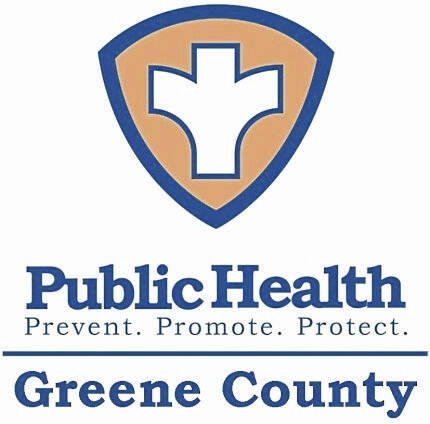
XENIA — September is National Prepared Month and the campaign will focus on preparing older adults for disasters, specifically older adults from communities that are disproportionally impacted by all-hazard events.
The theme is “Take Control in 1, 2, 3.”
“We know older adults can face greater risks when it comes to the multitude of extreme weather events and emergencies we now face, especially if they are living alone, are low-income, have a disability, or live in rural areas,” Greene County Public Health said in a release. “Older adults may have specific needs after a disaster.”
This information will help assess your needs and offer tips to take simple, low-cost steps that help you get better prepared.
— Know what disasters could affect your area, which could call for an evacuation, and when to shelter in place, and plan what you need to do in both cases.
— Keep a NOAA Weather Radio tuned to your local emergency station and monitor TV and radio for warnings about severe weather in your area.
— Download the FEMA app and get weather alerts from the National Weather Service for up to five different locations anywhere in the United States.
Plan ahead
— Plan how you will communicate if you have a communications need.
— Plan for food, water, and essentials for you and pets or service animals. Research pet-friendly evacuation centers.
— Plan for your transportation if you need help evacuating.
— Include items that meet your individual needs, such as medications, medical supplies, batteries, and chargers, in your emergency supply kit.
— Plan how you will have your assistive devices with you during an evacuation.
— Make copies of Medicaid, Medicare, and other insurance cards.
Make a plan
Determine any special assistance you may need and include plans for that assistance in your emergency plan.
— Create a support network of family, friends and others who can assist you during an emergency. Make an emergency plan and practice it with them.
— Make sure at least one person in your support network has an extra key to your home, knows where you keep your, emergency supplies, and knows how to use lifesaving equipment or administer medicine.
— If you undergo routine treatments administered by a clinic or hospital, find out their emergency plans and work with them to identify back-up service providers.
— Don’t forget your pets or service animals. Not all shelters accept pets, so plan for alternatives. Consider asking loved ones or friends outside of your immediate area if they can help with your animals.
Get your benefits electronically
A disaster can disrupt mail service for days or weeks. If you depend on Social Security or other regular benefits, switching to electronic payments is a simple, important way to protect yourself financially before disaster strikes. It also eliminates the risk of stolen checks. The U.S. Department of the Treasury recommends two safer ways to get federal benefits:
— Direct deposit to a checking or savings account. If you get federal benefits you can sign up by calling 800-333-1795 or sign up online.
— The Direct Express prepaid debit card is designed as a safe and easy alternative to paper.
For detailed information about how to be ready for the emergencies you may be at risk for, visit Ready.gov. Learn more about National Preparedness Month by visiting Ready.gov/September. Greene County Public Health has an emergency preparedness booklet for families. You can view it at https://www.gcph.info/files/documents/files/2021/03/emergency_preparedness_guide.pdf.
For more information or to receive a hard copy of the booklet, contact the public information officer at Greene County Public Health, Laurie Fox, at [email protected] or 937-374-5669.

